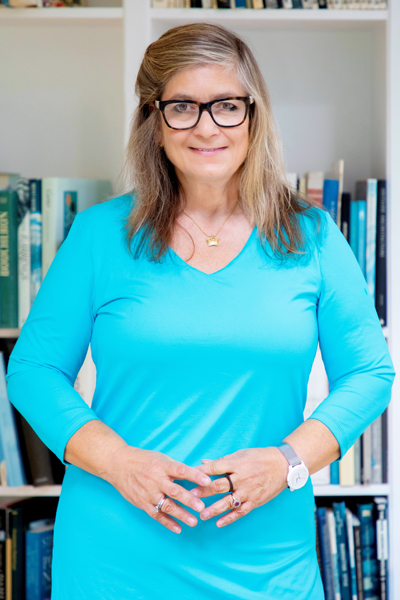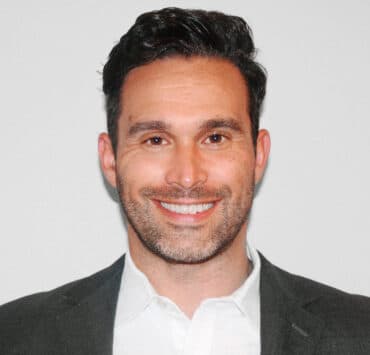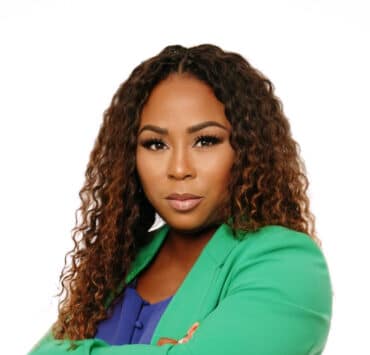|
Getting your Trinity Audio player ready...
|
As a recent graduate in classics and comparative literature from Brown University, Suzanne Telsey wanted to go into publishing. And she did, although perhaps not in the way that she had anticipated.
“I ended up joining a legal publisher, Matthew Bender, as an associate editor,” Telsey explains. “I worked on the updates for a number of different titles, including Nimmer on Copyright.”
That particular legal text soon became directly relevant to Telsey’s career. After completing law school at New York University School of Law, she ultimately settled on copyright law—and intellectual property (IP) law more broadly—as a specialization. The area allowed Telsey to return to the publishing industry, where she has remained ever since.

Today, Telsey is associate general counsel at McGraw Hill. The company is best known for its publication of textbooks and other educational materials, which are increasingly digital. Telsey combines her legal expertise with an in-depth understanding of the publishing world to protect the company’s print and digital IP. As much as her decades of experience guide her in this work, she also continues to push into new areas to keep pace with the evolving industry and the myriad challenges that it presents.
Prior to joining McGraw Hill in 2000, Telsey honed her skills as a law clerk for the Honorable Pierre N. Leval and then as a litigation associate at the law firm Kramer Levin Naftalis & Frankel. But it was her subsequent work as an in-house attorney at trade publisher Bantam Doubleday Dell Publishing Group and direct market publisher DeAgostini Publishing USA that truly paved the way to her current role. She delved into the publishing industry’s copyright, trademark, and privacy issues in addition to vetting manuscripts and shepherding numerous contracts through the drafting, review, and revision phases.
“The work was different, the titles and the products were different, the distribution was different, and the markets were different, but I dealt with very similar issues at each of the three houses,” says Telsey of her time at Bantam Doubleday Dell, DeAgostini, and now McGraw Hill. “Even though each company was a different type of publisher, I was able to develop an expertise in those issues.”
At the time of Telsey’s arrival at McGraw Hill, the company consisted of an educational publishing arm, a magazine and local TV station arm that included Business Week, and a division that ultimately became financial analytics and information provider S&P Global. When the educational publishing arm spun off in 2013, Telsey moved with it.
Together with the GC, she hired new attorneys and executed all necessary processes to establish a stand-alone legal department. She helped create the business’s original terms of use and terms of service, then began standardizing forms and procedures around in- and out-licensing, permissioning, and other routine agreements and terms.
On top of addressing day-to-day IP questions and concerns, Telsey leads McGraw Hill’s ever-expanding antipiracy program. Piracy has become increasingly rampant since her early days in the publishing industry, due in part to the influx of digital materials to the market and the expanding scope of digital marketplaces.
“We are constantly monitoring the ever-changing landscape of digital piracy, looking where our enforcement efforts are needed and will have the greatest impact in protecting our IP. It’s a matter of staying abreast of where the pressure points are and where we see the problem.”
“We did find counterfeit print books, but we were able to address the problem by various enforcement activities and by getting distributors to follow best practices in terms of watching what they were buying and not buying books from unknown sources,” Telsey explains. “We’re now focusing more on digital, in large part because the nature of the industry is becoming more digital.”
As the industry started to shift, Telsey felt the need to take a more proactive approach to defending McGraw Hill’s IP against ongoing and future infringement. She convinced the company to hire a seasoned antipiracy director, who, among other things, set up vendor monitoring for pirate activity.
As part of an overall IP enforcement program, working with outside antipiracy counsel, Telsey has identified and filed numerous litigations against pirate sellers and distributors around the globe. “We are constantly monitoring the ever-changing landscape of digital piracy, looking where our enforcement efforts are needed and will have the greatest impact in protecting our IP. It’s a matter of staying abreast of where the pressure points are and where we see the problem,” she says.
In some instances, Telsey coordinates with fellow educational publishers and groups such as Publishers Association in the UK and the Association of American Publishers on enforcement. “Typically, if a pirate is selling our textbook and educational products, they’re also selling other publishers’ educational products. We’ve brought a lot of joint actions, which is helpful in that we’re able to share the cost as well as the benefits,” she confirms. “You’re not going to solve the problem entirely, but you can make a difference.”
Just as she takes pride in protecting the educational materials that McGraw Hill produces, Telsey is grateful to have found a career at the intersection of IP and publishing. “I was a comp lit and classics major. That was always my passion, and I never thought when I went to law school that I would be able to combine that interest with law,” she says. “I’m really lucky that I’ve gotten to do that.”
***
Patterson Belknap Webb & Tyler LLP:
“I have known Suzanne since college and have always been struck by her piercing intelligence and dry sense of humor. Her knowledge of copyright law and publishing is unparalleled, and it has been a pleasure to work with her and McGraw Hill for many years, including in our recent victory dismissing an antitrust challenge to McGraw Hill’s Inclusive Access program.”
–Saul Shapiro, Partner and Litigation Department Chair


